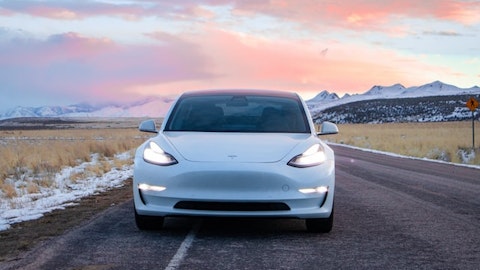In this article we are going to list the 15 biggest companies that don’t pay taxes. Click to skip ahead and jump to the 5 biggest companies that don’t pay taxes. No matter where you are in the world, you have to pay taxes, either directly or indirectly. You pay direct taxes on your salary and other sources of income which is either deducted from your pay check by the company you work for or you have to pay tax yourself at the end of the year, but either way, we have to pay our taxes and if we don’t, well, we go to jail. Indirect taxes on the other hand are paid when you purchase goods or products and services which have sales tax or other types of indirect taxes already tacked on to the price. So, chances are, where ever you live, you have to pay taxes unless you are living in one of the oil rich countries in the Middle East, who are so rich that they don’t even need taxes from their citizens, as you can see in the 18 countries with the lowest individual tax rates in the world.
But why do countries tax their citizens? All my life, I have seen people moaning about having to pay taxes and part with their hard earned income, and while it may be a difficult thing to do, it is also a necessary thing to do. Taxes are necessary to develop infrastructure which includes roads, bridges, utility, water and much more. This is why you’ll see much higher tax rates in developed countries as these taxes are used to provide its citizens (all citizens) with a high standard of living. However, a fair accusation which is true for many countries, especially the United States, is that there are too many exemptions for the ultra rich, primarily due to their influence which ensures their wealth which ensures their influence and so the cycle continues.

lOvE lOvE/Shutterstock.com
However, things take an even worse turn in the United States when you consider its biggest companies. Companies hate paying taxes and use their massive resources to find any way to avoid tax, and on some occasions even evade tax, which is absolutely illegal. However, tax avoidance is a bigger dilemma than tax evasion because tax avoidance is completely legal and hence, you can’t even take action against companies for not paying tax. Amazon was famously not profitable for many years even as it kept on growing its market share. President Trump simply added to the coffers of these companies when he signed in the Tax Cuts and Jobs Act, where he decreased the corporate tax rate by 40% to 21%. Many other companies were able to use this law along with the already existing laws to skirt around tax payments and avoid paying tax. The Institute on Taxation and Economic Policy carried out research into the effects of this new law towards the end of December 2019, and found out that 379 profitable companies had an effect tax rate of 11.1%, which is around 50% less than the already significantly decreased tax rate. 91 corporations did not pay any tax at all even though many of them were profitable. Another 56 companies had an effective tax rate of between 0% and 5%, with the average tax rate for these companies being just 2.2%.
The above numbers are especially concerning considering the fact that there is a major tax burden on its citizens, many of whom live paycheck to paycheck. In fact, according to the Organization of of Economically Developed Countries, the average tax rate for a US citizen was 24%. Compare that to the above number and just think about the taxes being avoided by these billion corporations whose CEOs earn more in a year than the vast majority of workers will in their entire lifetimes. And it it especially because of these companies avoiding taxes that the burden falls on the average worker who doesn’t have the time, resources or know-how to avoid tax like corporations.
It is one thing to avoid tax when you are not earning a profit, and it is entirely a different thing to avoid tax when you are earning billions of dollars each year in net profits. And the tax breaks claimed by the companies are highly concentrated as well. On their income for 2018, just 25 companies were able to claim tax breaks worth more than $37.1 billion.
Our focus was to find the biggest companies in the United States who are avoiding paying taxes. To determine that, we took the 91 companies which didn’t pay tax on their 2018 income as reported by the Institute on Taxation and Economic Policy. We then compared these companies to America’s biggest companies by searching for them in the Fortune 500 list. Once we found the biggest companies which don’t pay taxes, we then ranked them based on their 2019, revenue, assets and employees. We have also mentioned their net income in 2019 just for information purposes. So let’s take a look at the companies taking advantage of the law and avoiding paying taxes, starting with number 15:
15. Netflix (NASDAQ:NFLX)
Total revenue of the company in 2019 (in billions of dollars): 20,156
Total profit of the company in 2019 (in billions of dollars): 1,867
Total assets of the company in 2019 (in billions of dollars): 33,976
Total employees of the company in 2019: 8,600
Netflix has grown by leaps and bounds over the past several years and is now an entertainment giant, but didn’t pay tax in the United States, since it actually paid foreign taxes and received tax credits from the US on the same, thereby not paying tax in the US.

Copyright: lculig / 123RF Stock Photo




